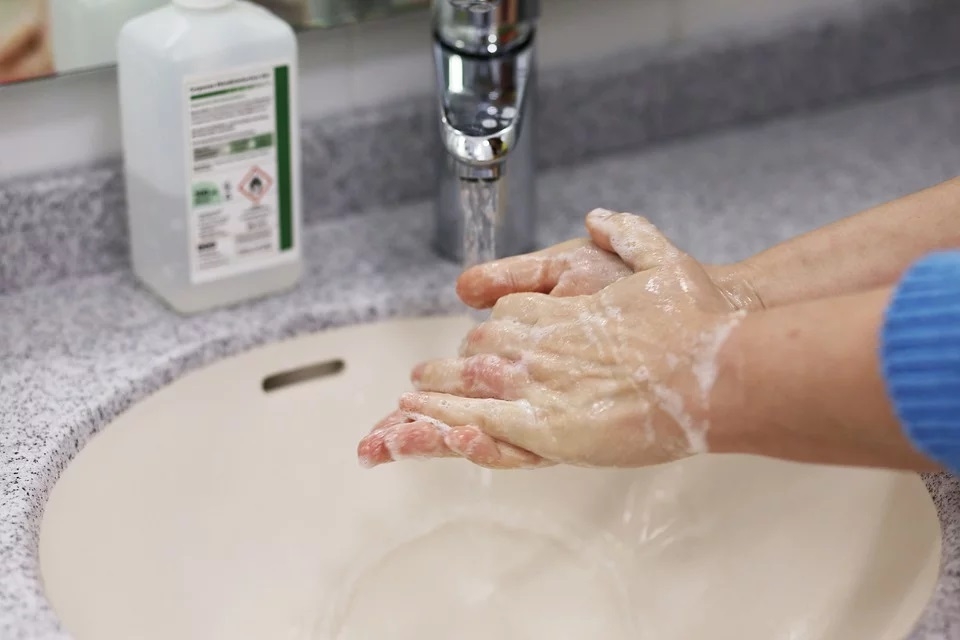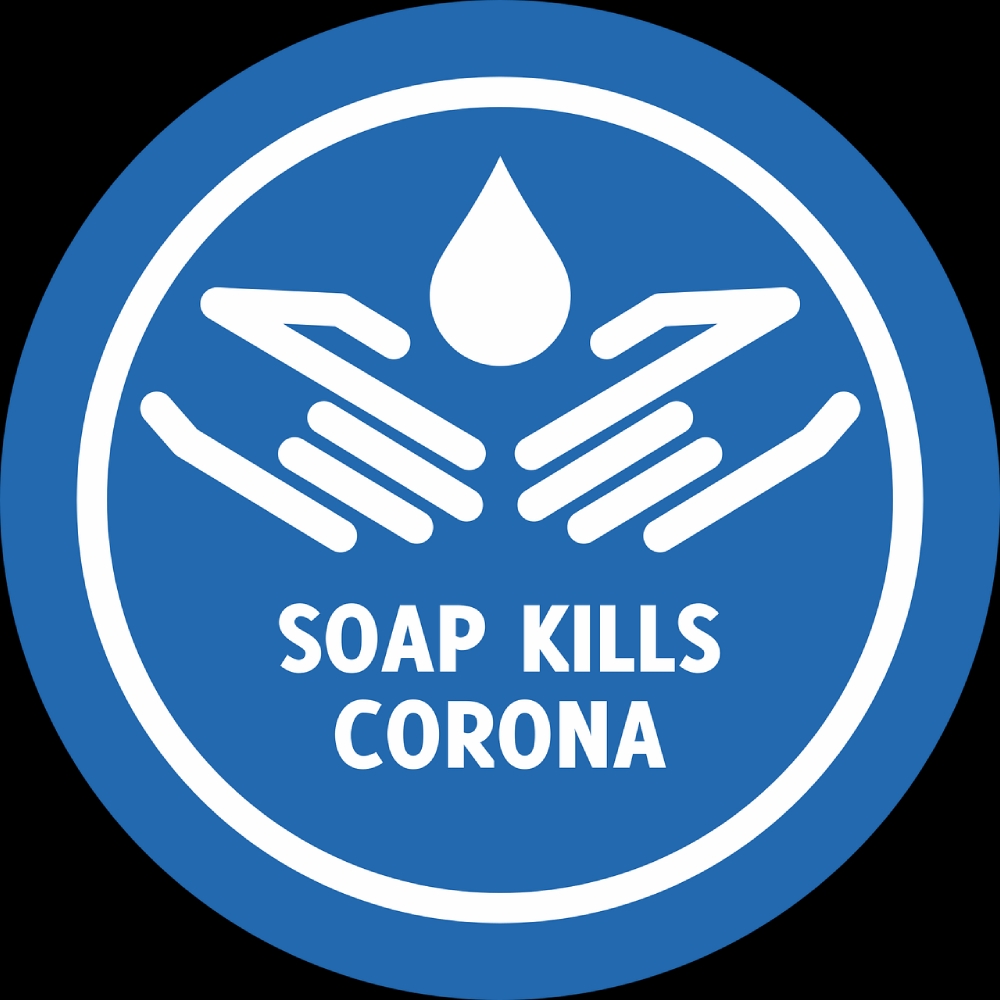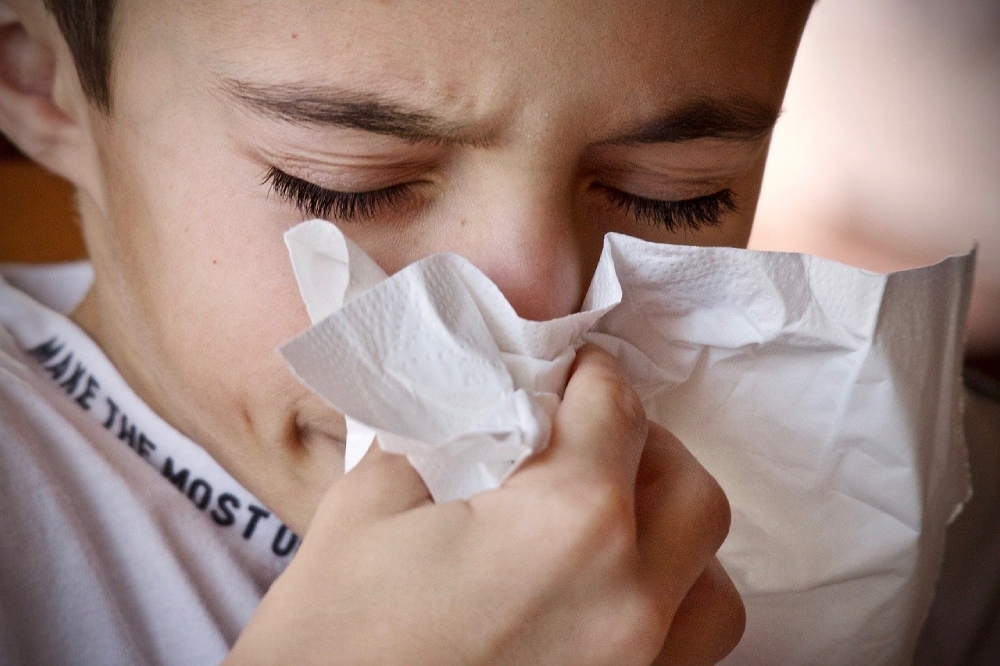10 ways to protect your baby and children against coronavirus
March 16th, 2020
2773 Views

The news in all countries is about coronavirus (COVID-19) the disease that is spreading at an alarming rate in many countries. In the worst hit countries, schools have already closed and other measures are being put in place to try and protect as many people as possible from contracting the virus.
The first outbreak was in the city of Wuhan in China in December 2019. As Save the Children reports-
‘On Tuesday, January 21, 2020, the first case of a mysterious, pneumonia-like virus that originated in China was confirmed in the United States.
As of Wednesday, March 11, the World Health Organisation declared COVID-19 a pandemic’.’
The news is certainly extremely worrying for everyone, everywhere - but particularly those with babies and young children. At present though, coronavirus seems to be milder in children.
A World Health Organisation report published last month concluded that the disease appeared "relatively rare and mild" in children, with cases reported in people younger than 19 making up just 2.4% of the total. Only 2.5% of those younger than 19 had severe disease, and 0.2% had critical disease. (Marketwatch)
Specialists in the United States are currently testing the first vaccine on healthy young adults, but it will take time before one becomes available. There is still plenty parents can do to protect their children.
The first outbreak was in the city of Wuhan in China in December 2019. As Save the Children reports-
‘On Tuesday, January 21, 2020, the first case of a mysterious, pneumonia-like virus that originated in China was confirmed in the United States.
As of Wednesday, March 11, the World Health Organisation declared COVID-19 a pandemic’.’
The news is certainly extremely worrying for everyone, everywhere - but particularly those with babies and young children. At present though, coronavirus seems to be milder in children.
A World Health Organisation report published last month concluded that the disease appeared "relatively rare and mild" in children, with cases reported in people younger than 19 making up just 2.4% of the total. Only 2.5% of those younger than 19 had severe disease, and 0.2% had critical disease. (Marketwatch)
Specialists in the United States are currently testing the first vaccine on healthy young adults, but it will take time before one becomes available. There is still plenty parents can do to protect their children.
How is coronavirus spread?
This virus often appears when a person starts to develop pneumonia-like symptoms including fever, chills, congestion, an aching body and a cough.Coronavirus is spread when it comes into contact with someone’s eyes, nose, mouth or lungs. This happens easily when for example, a newly infected person sneezes. The droplets from the sneeze are released into the air and can fall on children’s faces and hands as well as nearby surfaces such as tables and chairs. The germs can stay on surfaces for a number of hours afterwards, but wiping with a normal cleaning solution is effective.
If you are a nursing mother...
For mums with young babies, the best advice is to stay at home away from other people. If you suspect that you are developing coronavirus and you are breastfeeding your baby, do seek medical advice straight away. It is likely that given the benefits of breastfeeding and the insignificant role that breast milk plays in the transmission of other respiratory viruses, you will be able to continue breastfeeding, whilst taking all the necessary precautions your GP will advise you on exactly what to do.
10 ways to protect your children?
1. Avoid crowds.If you do have to go to the shops, go at quieter times of the day and try and keep your distance from other people. Ensure that your child does not touch things and wipe the child seat and hand rail on the shopping trolley with an antiseptic wipe before you use it. Once outside of the shop, wipe your child’s hands with hand sanitiser or another antiseptic wipe.
2. Encourage your child to wash their hands frequently and well.
Show your child how to wash their hand effectively using some soap and water. Hands must be washed for at least 20 seconds each time so explain this is the length of time it takes to sing Happy Birthday, Baa Baa Black Sheep – or your child’s favourite nursery rhyme and encourage them to sing it loudly each time they wash their hands. Make it fun and sing along too and choose a different song each day.
Children must wash their hands well, whenever they use the toilet, after a cough or sneeze, before they eat and after playing in the garden.
3. Smiley charts for combating resistance!
Whilst many children will happily wash their hands, there are many who won’t! If you are meeting resistance, create a smiley chart for each day and reward your child with a sticker for the chart each time hands have been well washed. Give plenty of praise and suggest a treat for a day of good smileys such as an extra bedtime book to read together…. Some might call it bribery, but it works!
4. Teaching how to cough and sneeze well.
It is very important that your child knows that when they cough they should put their hand over their mouth and if they sneeze they should do so into the crook of their arm. If they use a tissue, they must throw it away carefully and right away.
They must wash their hands their hands well every time.

5. Keep a distance from the sick.
Even if it is a family member who is unwell, it is very important that your child is kept well away from them. If you do have to visit someone, keep your child at least two metres away and make sure they do not touch any furniture or door knobs. As soon as you leave, wipe your child’s face and hands with disinfectant wipes.
Lovely though it is to visit elderly relatives and friends, it is wise not to do so either with or without your children to prevent any risk of infection. A daily telephone call will be much appreciated and some ‘cheer up’ pictures by your children that can be popped through their letterbox.
6. Try to minimise your child touching everything!
This one is far easier said than done! It is important that your child does not touch everything when you are out and about. A clever way to ensure this is to give them a favourite toy to carry – don’t forget to wash the toy well when you get home and all the toys regularly.
7. Use hand sanitiser when you are out.
Whilst it is best to use plenty of soap and water to wash hands well, there are plenty of times in the day when this is just not possible. Make sure that you have some hand sanitiser in your bag and importantly use it! Make sure both you and your children wipe your hands regularly whilst you are out and then wash your hands really well once you get home. The most effective type of hand sanitiser to buy is one that has an alcohol content of at least 60%
8. What if your child has a medical condition?
Children who suffer from asthma are more prone to catching the coronavirus, so it is important to keep a close eye on them.
If your child is diabetic is is essential that you control their diabetes really well because if diabetes is not well controlled, it can lead to a weakening of the immune system. If you have any concerns or questions, it is best to speak with your GP.
Even if it is a family member who is unwell, it is very important that your child is kept well away from them. If you do have to visit someone, keep your child at least two metres away and make sure they do not touch any furniture or door knobs. As soon as you leave, wipe your child’s face and hands with disinfectant wipes.
Lovely though it is to visit elderly relatives and friends, it is wise not to do so either with or without your children to prevent any risk of infection. A daily telephone call will be much appreciated and some ‘cheer up’ pictures by your children that can be popped through their letterbox.
6. Try to minimise your child touching everything!
This one is far easier said than done! It is important that your child does not touch everything when you are out and about. A clever way to ensure this is to give them a favourite toy to carry – don’t forget to wash the toy well when you get home and all the toys regularly.
7. Use hand sanitiser when you are out.
Whilst it is best to use plenty of soap and water to wash hands well, there are plenty of times in the day when this is just not possible. Make sure that you have some hand sanitiser in your bag and importantly use it! Make sure both you and your children wipe your hands regularly whilst you are out and then wash your hands really well once you get home. The most effective type of hand sanitiser to buy is one that has an alcohol content of at least 60%
8. What if your child has a medical condition?
Children who suffer from asthma are more prone to catching the coronavirus, so it is important to keep a close eye on them.
If your child is diabetic is is essential that you control their diabetes really well because if diabetes is not well controlled, it can lead to a weakening of the immune system. If you have any concerns or questions, it is best to speak with your GP.
9. Talk with your children about coronavirus.
It is very important that your child understands what is going on in the world as they could find the situation frightening and stressful. Keep calm yourself, but explain to them why you are increasing personal hygiene for the whole family and what other measures you are taking.
A good way to begin the conversation with school age children is by asking them what they know about coronavirus. In discussions with children, keep calm, be honest and well informed. Pre-school children will certainly be aware that something is going on, so explain to them about the pandemic is phrases they will understand and focus on hand washing to keep well. Keep yourself well informed and always be ready to answer their questions.
Most importantly, reassure your child and explain that doctors and scientists are working hard to keep everyone safe.
10. Discuss plans as a family.
Chat about not visiting relatives and the possibility of schools having to close as this will make your child feel more confident about the situation and of course, the positive spin off is that you can spend more time together as a family. Your child will still be able to go out to play in the garden and as a family you can take good walks to the local woods etc., it is just that the play park is not somewhere you will be visiting for a little while…
It is very important that your child understands what is going on in the world as they could find the situation frightening and stressful. Keep calm yourself, but explain to them why you are increasing personal hygiene for the whole family and what other measures you are taking.
A good way to begin the conversation with school age children is by asking them what they know about coronavirus. In discussions with children, keep calm, be honest and well informed. Pre-school children will certainly be aware that something is going on, so explain to them about the pandemic is phrases they will understand and focus on hand washing to keep well. Keep yourself well informed and always be ready to answer their questions.
Most importantly, reassure your child and explain that doctors and scientists are working hard to keep everyone safe.
10. Discuss plans as a family.
Chat about not visiting relatives and the possibility of schools having to close as this will make your child feel more confident about the situation and of course, the positive spin off is that you can spend more time together as a family. Your child will still be able to go out to play in the garden and as a family you can take good walks to the local woods etc., it is just that the play park is not somewhere you will be visiting for a little while…
Coronavirus is a serious health concern, but it is important to remain upbeat and positive and for your family to work together to minimise the risk of infection and to try and keep everyone well…..
Chrissie x

